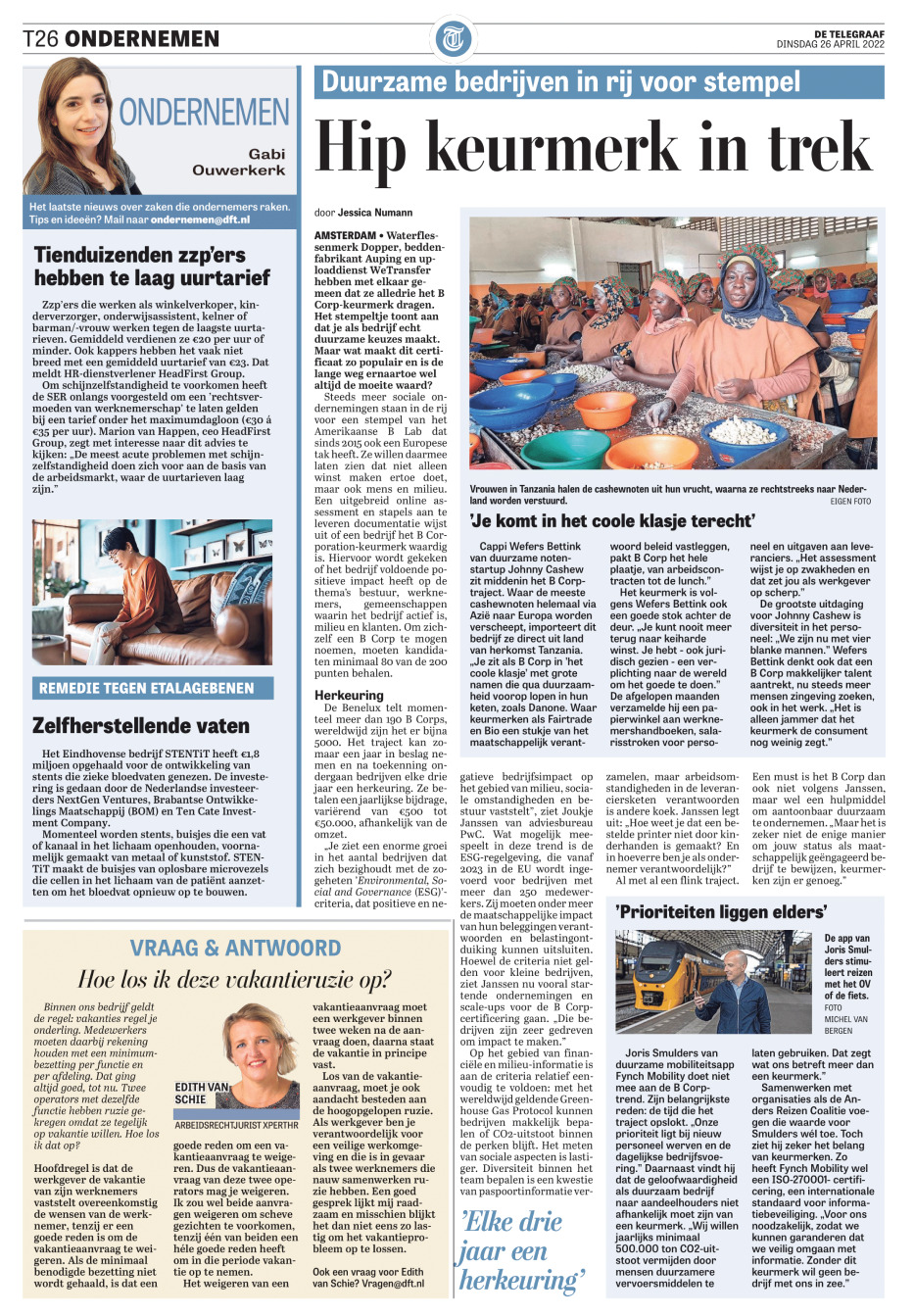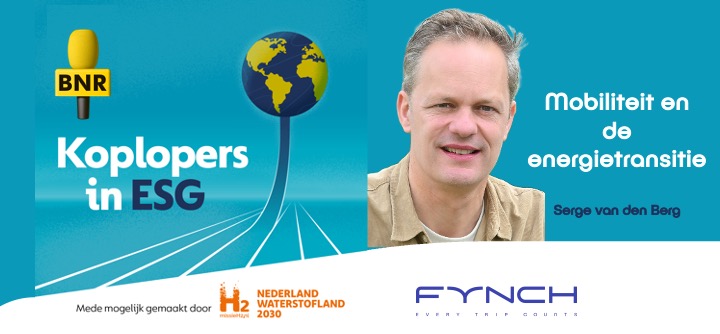Companies are queuing up to receive a sustainable quality mark
this article was originally published by De Telegraaf
Companies are queuing up to receive a sustainable quality mark
Water bottle brand Dopper, bed manufacturer Auping and upload service WeTransfer have in common that all three bear the B Corp quality mark. The stamp shows that as a company you really make sustainable choices. But what makes this certificate so popular and is the long road to get there always worth it?
More and more social enterprises are queuing for a stamp of the American B Lab, which has also had a European branch since 2015. They want to show that it is not only making a profit that matters, but also people and the environment. An extensive online assessment and piles of documentation to be supplied will show whether a company is worthy of the B Corporation quality mark.
To this end, it is examined whether the company has a sufficiently positive impact on the themes of governance, employees, communities in which the company is active, the environment and customers. To qualify as a B Corp, candidates must earn a minimum of 80 out of 200 points.
Re-examination
The Benelux currently has more than 190 B Corps, worldwide there are almost 5000. The process can easily take a year and after granting companies undergo a re-inspection every three years. They pay an annual fee ranging from $500 to $50,000, depending on revenue.
“You see an enormous growth in the number of companies that are concerned with the so-called ‘Environmental, Social and Governance (ESG)’ criteria, which determine positive and negative business impact in the field of the environment, social conditions and governance,” says Joukje Janssen from consultancy firm PwC. What may be contributing to this trend is ESG regulation, which will be introduced in the EU from 2023 for companies with more than 250 employees. Among other things, they must account for the social impact of their investments and be able to exclude tax evasion. Although the criteria do not apply to small companies, Janssen now sees mainly start-ups and scale-ups opting for the B Corp certification. “Those companies are very driven to make an impact.”
In the field of financial and environmental information, the criteria are relatively easy to meet: with the globally applicable Greenhouse Gas Protocol, companies can easily determine whether CO2 emissions are kept within limits. Measuring social aspects is more difficult. Determining diversity within the team is a matter of collecting passport information, but justifying working conditions in the supply chain is another matter. Janssen explains: “How do you know that an ordered printer is not made by children? And to what extent are you responsible as an entrepreneur?”
All in all, quite a journey. According to Janssen, B Corp is therefore not a must, but it is a tool for demonstrably sustainable entrepreneurship. “But it is certainly not the only way to prove your status as a socially engaged company, there are plenty of labels.”
Joris Smulders of sustainable mobility app Fynch Mobility is not participating in the B Corp trend. His main reason: the time that the route takes up. “As a small, fast-growing company, our priority is recruiting new staff and running day-to-day operations.” In addition, he believes that credibility as a sustainable company towards shareholders should not be dependent on a quality mark. “My partner and I want to avoid at least 500,000 tons of CO2 emissions annually by letting people use more sustainable means of transport. As far as we are concerned, that says more than a quality mark.”
Collaborating with organizations such as the Anders Reizen Coalitie and various accessibility regions does add that value for Smulders. Nevertheless, he certainly sees the importance of quality marks, Fynch Mobility does have an ISO-270001 certification, an international standard for information security. “Necessary for us, so that we can guarantee that we handle information securely. Without this quality mark, no company wants to work with us.” If a status as B Corp demonstrably contributes to achieving Fynch’s impact target, he will certainly think about it again.
According to Wefers Bettink, the quality mark is also a good stick behind the door. “You can never go back to hard winning. You have an obligation – also from a legal point of view – to the world to do the right thing.” Over the past few months, he’s amassed a paperwork of employee handbooks, staff payslips, and supplier expenses. “The assessment points out weaknesses and that puts you on the edge as an employer.”
The biggest challenge for Johnny Cashew is diversity in the workforce: “We are now four white men.” Wefers Bettink also thinks that a B Corp attracts talent more easily, as more and more people are looking for meaning, also in work. “It’s just a shame that the quality mark means little to the consumer.”


